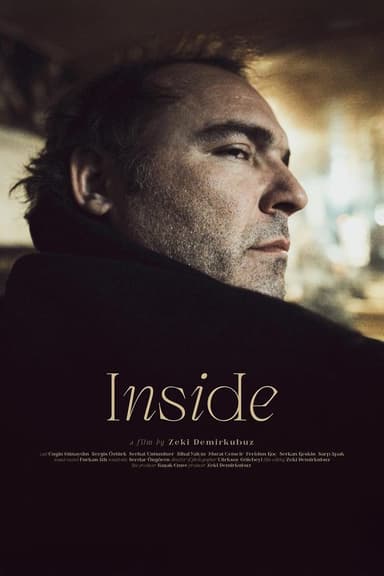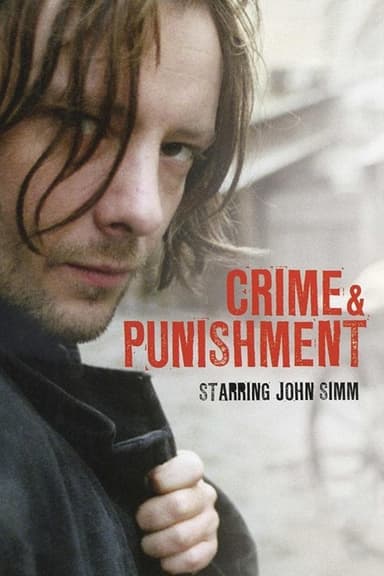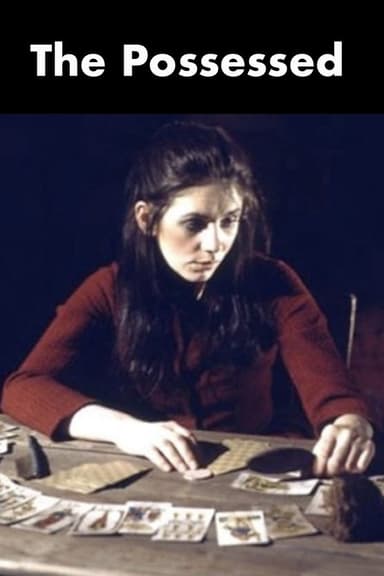
Crime + Punishment in Suburbia
2000 • Crime, Drama, Thriller • R
At school, Roseanne is the object of fellow student Vincent's infatuation. By night, she deals with a troubled family life: her mother, Maggie, cheats on her drunken husband, Fred. When Maggie's adultery is revealed, Fred viciously takes his anger out on stepdaughter Roseanne. With the help of her boyfriend, Jimmy, Maggie plots her revenge, but Vincent might be the one to help her forge a new life in this contemporary fable loosely based on Fyodor Dostoyevsky's "Crime and Punishment".
Runtime: 1h 40m
Why you should read the novel
Fyodor Dostoevsky's 'Crime and Punishment' is a timeless masterpiece that delves far deeper than any film adaptation can. The novel explores the psychological torment and moral dilemmas faced by its protagonist, Raskolnikov, creating an unparalleled depth of character and philosophical intrigue that the movie can only hint at. Readers looking for a rich, immersive experience will find ample rewards in Dostoevsky's intricate narrative and powerful prose.
If you're fascinated by the themes of guilt, redemption, and the nature of crime, the original 'Crime and Punishment' is essential reading. Dostoevsky’s exploration of conscience and morality remains deeply relevant in today's world. Instead of just watching the surface-level drama in the movie, reading the book allows you to truly grapple with the powerful human questions at its core.
The novel also offers historical and cultural perspectives that are absent from the film adaptation. Immerse yourself in 19th-century St. Petersburg and witness society’s complex interplay with poverty, power, and justice through Dostoevsky’s unique lens. Reading the book unlocks a world of intellectual and emotional depth that no screen adaptation can match.
Adaptation differences
One of the main differences between 'Crime + Punishment in Suburbia' and Dostoevsky's 'Crime and Punishment' is the setting and context. The novel is set in 19th-century Russia and explores societal dynamics of its time, while the film adaptation transposes the story to contemporary American suburbia, shifting the focus to teenage protagonists and modern social issues. This change results in a vastly different atmosphere and tone.
Another significant difference is character motivation and development. In Dostoevsky’s novel, Raskolnikov’s philosophical struggle with morality and justice is central to the narrative, giving readers intimate access to his inner turmoil. The film adopts a more externalized approach, focusing on tangible events rather than deep internal conflicts. As a result, the psychological complexity that defines the novel is diluted in the movie version.
Additionally, 'Crime + Punishment in Suburbia' alters several key plot elements and character relationships to better fit the high school drama genre. Certain events and outcomes are simplified or modified, which leads to a loss of the nuanced moral ambiguity present in the original book. Those who value intricate storytelling and layered characters will find the novel much more satisfying.
Lastly, the philosophical discussions on crime, punishment, guilt, and redemption in Dostoevsky's work are largely absent or glossed over in the film. The book relies heavily on introspection and detailed explorations of existential themes, inviting the reader to contemplate profound questions about human nature. For those seeking intellectual engagement and a deeper understanding of the story, reading 'Crime and Punishment' is far superior to watching its modern adaptation.
Crime + Punishment in Suburbia inspired from
Crime and Punishment
by Fyodor Dostoevsky














